Hepatitis C Medicines - Fact Sheet for Community Based Prescribers
Page last updated: 1 June 2017
Which medicines for the treatment of hepatitis C are available through the PBS?
A range of medicines for the treatment of hepatitis C are available through the PBS. The medicines that are currently available are included in the General Statement for Drugs for the Treatment of Hepatitis C.
How are the medicines presented in the PBS Schedule?
The medicines are listed in the Schedule using a General Statement for Drugs for the Treatment of Hepatitis C to outline the patient eligibility conditions and prescribing restrictions. Treatment matrices outlining the particular medicines and regimens available through the PBS to individual patients, based on their disease genotype and treatment history, are also included in the General Statement to guide prescribing.
These hepatitis C medicines are available through both the PBS General Schedule (‘Section 85’) and the Section 100 (S100) Highly Specialised Drugs (HSD) Program [but outside the HSD Community Access arrangements introduced on 1 July 2015]. PBS patient eligibility is the same whether the medicines are being prescribed under the PBS General Schedule or the HSD program.
Prescribers working in the community should use the PBS General Schedule listings.
Who is able to prescribe these medicines?
States and territories may have specific requirements about who is eligible to prescribe these hepatitis C medicines in their jurisdiction.
For the purposes of the PBS subsidy, where state or territory requirements allow, all medical practitioners, including general practitioners (GPs), experienced in the treatment of chronic hepatitis C infection, are eligible to prescribe these hepatitis C medicines. All other medical practitioners are also eligible to prescribe under the PBS, provided that is done in consultation with a gastroenterologist, hepatologist, or infectious disease physician experienced in the treatment of chronic hepatitis C infection.
From 1 June 2017, where state or territory requirements allow, all authorised nurse practitioners experienced in the treatment of chronic hepatitis C infection are eligible to prescribe these medicines under the General Schedule. All other authorised nurse practitioners are also eligible to prescribe under the PBS General Schedule, provided that is done in consultation with a gastroenterologist, hepatologist, or infectious disease physician experienced in the treatment of chronic hepatitis C infection.
What does ‘in consultation with’ mean in this context?
For the purposes of prescribing the hepatitis C medicines through the PBS, the term ‘in consultation with’ is intended to mean a medical practitioner or authorised nurse practitioner not experienced in the treatment of chronic hepatitis C infection must consult with one of the specified specialists by phone, mail, email or videoconference in order to meet the prescriber eligibility requirements.
Patients do not need to have attended an appointment with a gastroenterologist, hepatologist, or infectious diseases physician prior to being prescribed one of the new medicines by a medical practitioner or authorised nurse practitioner.
Will these medicines require a PBS Authority approval prior to prescribing?
Yes. Prescribers may use either the written or telephone channels to seek approval from Services Australia or the Department of Veterans’ Affairs (DVA) before prescribing these medicines under the PBS. They are not streamlined authorities.
The Authority Prescription Application Service, administered by DHS-Medicare, can be contacted on 1800 888 333 or DVA on 1800 552 580.
A separate authority prescription will need to be authorised for each medicine for PBS subsidy.
What information do prescribers have to provide when seeking authority approval?
Prescribers will be required to provide the following information at the time of application:
- the hepatitis C virus genotype; and
- the patient’s cirrhotic status (non-cirrhotic or cirrhotic).
Prescribers must also document the following information in the patient’s medical records:
- evidence of chronic hepatitis C infection (repeatedly antibody to hepatitis C virus (anti-HCV) positive and hepatitis C virus ribonucleic acid (HCV RNA) positive); and
- evidence of the hepatitis C virus genotype.
These requirements are set out in the PBS Schedule. Additional information, such as viral load and liver function test results, is not required as part of an application for PBS subsidy.
Can patients receive repeat treatment or be prescribed a different course of treatment under the PBS?
Repeat treatment and use of a subsequent or different course of treatment with the new medicines is not supported by current evidence. Although the current PBS restrictions do not prohibit patients receiving repeat treatment or a different course of treatment, the Department will be reviewing the use of these new medicines in the future to ensure they remain value for money for Australian taxpayers.




